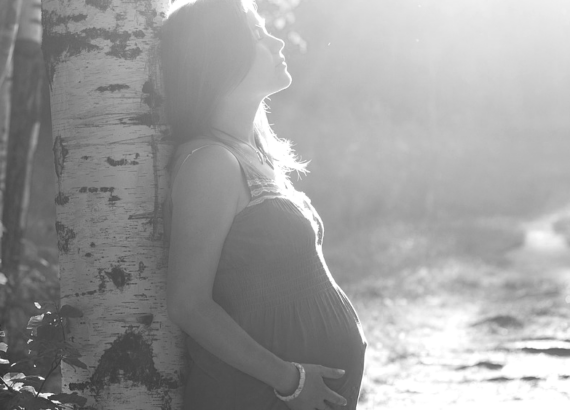When to Seek Therapy After a Traumatic Birth or Pregnancy

As a society, we have a tendency to gloss over the rough and gritty aspects of life. We apply a glossy finish to pregnancy and childbirth, especially airbrushed models in magazine spreads and mothers smiling with a swaddled newborn in their arms. The truth is almost always more complicated. In the case of birth and pregnancy, many women feel pressured to conform to the mythology of bliss when, in reality, they are still struggling to process what is, for many, a physically and emotionally traumatic experience.
In today’s post, we’ll talk about when to seek therapy after a traumatic birth or pregnancy.
Understanding Trauma
First, it is important to understand that trauma is both a physiological experience and subjective in nature. It is often triggered by the chemical response we feel in scary and uncertain situations. Medical complications and emergency interventions are two examples of things that might trigger a traumatic experience. Still, even a last-minute change in a carefully thought-out birth plan could do the same. Pregnancy and childbirth are unpredictable and dangerous: it is natural to need extra time and care to process that experience.
Signs of Trauma
Avoidant Behaviors
Reluctance to reach out to the doctor or make medical appointments; resistance toward working or interacting with medical professionals.
Difficulty Bonding
A traumatic birth or pregnancy can make it more difficult for mothers to bond with their babies. Many mothers struggle to connect emotionally with their babies, particularly after a traumatic experience. This is nothing to feel ashamed of.
Fatigue/Desire to Isolate
Instead of welcoming visitors and help from friends and family, you may feel the desire to pull back and isolate. Importantly, this can also be a sign of trauma-related depression.
Increased Irritability
Mood swings and fits of anger are common responses to stress. It’s important to keep in mind how closely trauma is linked to our fight-or-flight response. This is the ‘fight’ in that equation. It is particularly important to be open about your feelings, and reach out for help if you feel the impulse to lash out at or hurt yourself or your baby.
Increased Anxiety
Many mothers experience heightened worries about their own health and the health of their baby after a traumatic birth. When these worries become persistent or disruptive, it’s important to voice those concerns in a safe space.
Persistent Sadness
Some amount of sadness after childbirth is natural. Our bodies undergo profound chemical changes as our hormones rebalance, which can impact our mood. If these feelings of sadness are particularly deep or long-lasting, it could be a sign of postpartum depression. In that case, therapeutic intervention may not only be advisable but necessary.
Physical Symptoms
Because trauma is a physiological process, it’s common for it to manifest through migraines, nausea, and other unexplained issues. In some cases, these symptoms can be triggered unconsciously by reminders of the unprocessed traumatic experience — often in unexpected ways.
Types of Therapy
There are a number of different types of therapy that are effective for dealing with the aftermath of a traumatic birth experience. EMDR can be effective in helping process and resolve symptoms of trauma. At the same time, Cognitive Behavioral Therapy and Mindfulness practices provide tools to manage those symptoms on a day-to-day basis.
Schedule an Appointment
At Mindspace Counseling, we specialize in helping women process the experience of pregnancy and childbirth. We’ve worked with countless people to help them understand the physical and emotional trauma of childbirth, and process those experiences in a safe, caring space. You don’t have to take on these challenges alone. We are here to provide the guidance and support you need to navigate this process. Reach out today to schedule a free consultation, so we can help you on the road to healing.




